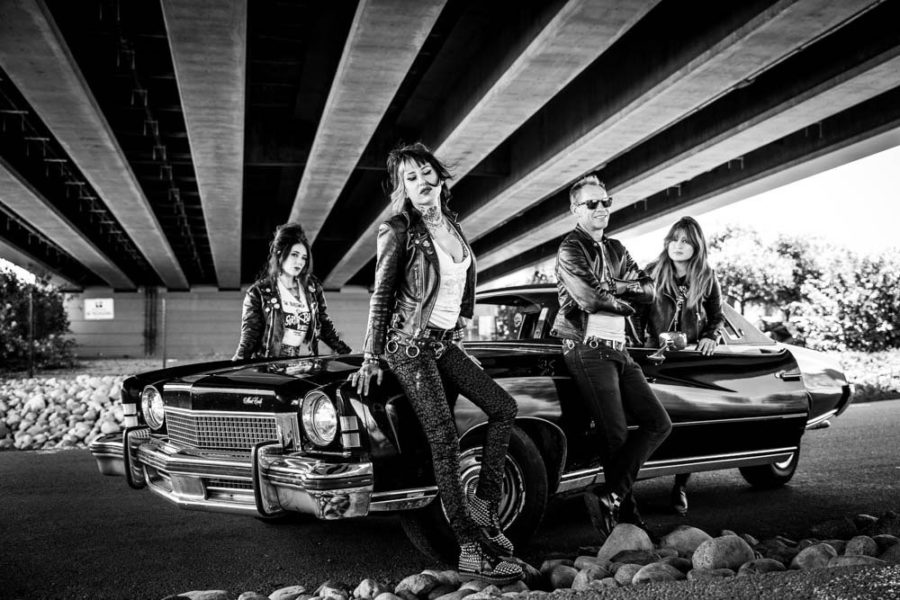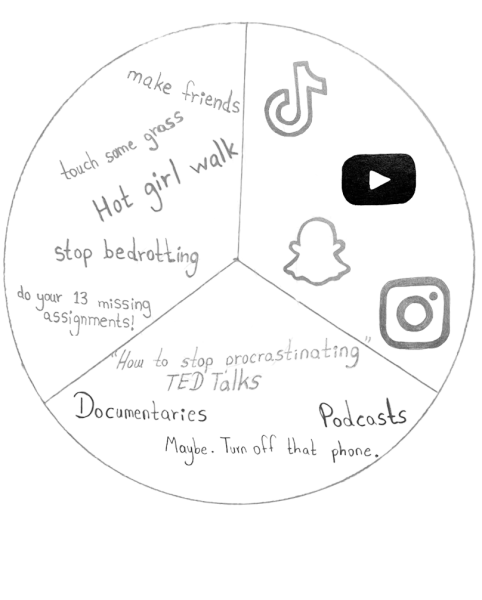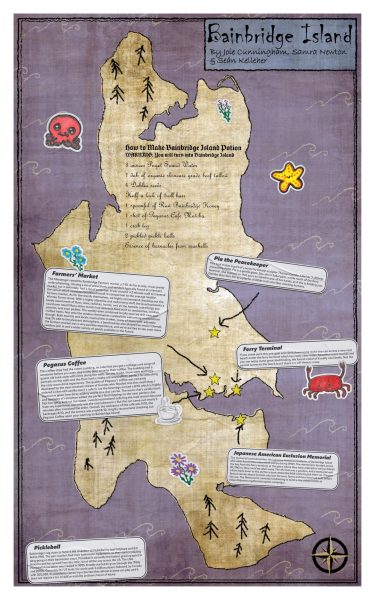Facing the music
What punk was, is, and represents in Seattle’s culture.
To say that Seattle would be Seattle without its prolific alternative scene, would be an oversight at best and at worst, simply false. The punk scene in the greater Seattle area has been the catalyst of the boom of Seattle’s music culture.
Punk has had a place in Seattle as long as the existence of the movement and music genre itself. The grunge genre can largely thank the punk movement for its big boom in the 1990′s. “You know, all the bands that got really famous in the early 90s came directly from punk. Some of them didn’t view themselves as punkers at all. But most of them were at those same punk shows,” explained longtime punker Dain Hudson of the local goth-punk band 38 Coffin. Punk, at its root, is a way to connect and share anger at injustice and spread ideas, such as being anti-establishment, challenging authority, and overall free-thinking. Most of all though, punk created a sense of community among the people who needed it most. “At the time, if you wanted to be one of the cool kids, you had to have the right shoes and the right hair, and you had to talk right and have the right amount of money and come from the right neighborhood. Otherwise, you were a loser. And so I was like, ‘Fine. I’ll take my loserness and I’ll go over here and have fun instead.’” Hudson reminisced on how it felt to go to his first punk show in 1984 (Aerobic Death opening for The Damned). As for whether or not this is still the case in the scene, “To an extent, I think that that’s still the spirit.” He continued, “There was not such a uniform way of dressing and a lot of people set themselves apart by having their own unique flair or their own unique style.”
Alongside punk arose Riot Girl bands like Bikini Kill who have their own place in the feminist movement. But with criticisms of transphobia, racism, and general lack of intersectionality in Riot Girl, emerged bands such as Sista Grrrl Riot, which eventually developed to become its own subgenre of punk. These bands have been and continue to be dedicated to providing space for Black femmes away from the racism that plagues the greater punk community.
Because of the fact that punks refused to be silenced, misconceptions from those outside the scene arose– that they were violent and didn’t talk about their emotions. “[My friends] had a really bad reputation for fighting and drinking, but I had more heartfelt, real conversations about the kinds of things going on in our lives than with really any group of friends… There’s a lot of acceptance, and a real lack of judgment,.” Hudson explained.
Hudson ended our interview by saying, “The thing that has kept music going and kept it interesting is the participation of not only musicians, but the people listening to the music and coming to the shows. [People] show up and that’s what creates a lot of the energy. And that’s what creates a lot of the music too.”
Punk in Seattle is what the people make of it. And if the punks of Seattle want change, it is up to them to follow the golden rule and be what they want to see in the scene. Punk isn’t dead, but it certainly isn’t the same… and maybe that could be for the better.
Avalon is a passionate 18 year-old senior and has been writing for the Messenger since January of 2021. When not at school or volleyball practice, you...






